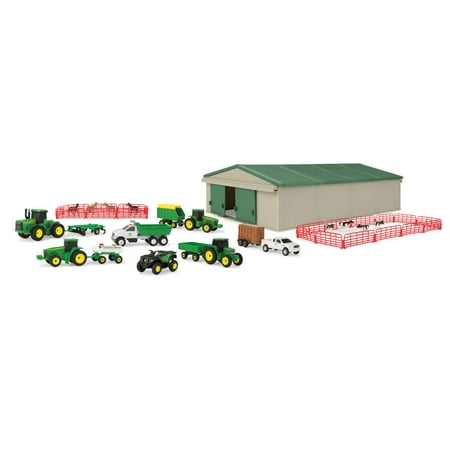John Deere Die-Cast Farm Toy 70 Piece Value Playset – Includes Machine Shed, Toy Vehicles and Toy Animals
The John Deere 70-Piece Value Set has everything kids need to start their own miniature farm. Each one includes a variety of tractors, trucks, farm implements and animals. Also included is a machine shed with opening doors and a removable roof so kids can store everything inside. Each vehicle is approximately 3″ long and features free-rolling wheels and a die cast chassis. The farm toy set is officially licensed by John Deere.









John Deere Value Set:John Deere value set includes over 70 pieces3″ scale vehiclesVehicles have a die cast chassisOfficially licensed by John DeereCustomizable toy set lets kids build their own farm layoutEasy to use: shed rooftop can be removed and doors can be opened for easy accessDurable die cast and plastic constructionMade for ages 5 years and up





Reviews
There are no reviews yet.